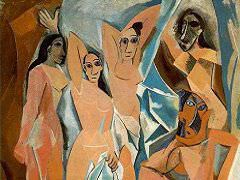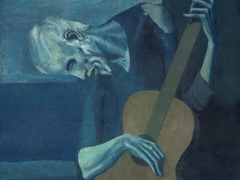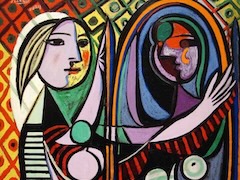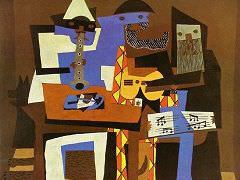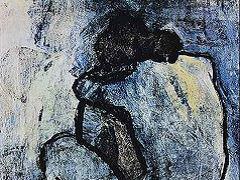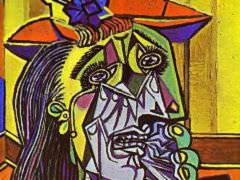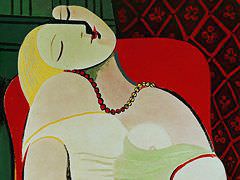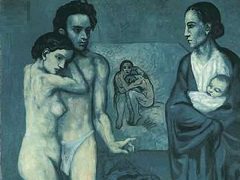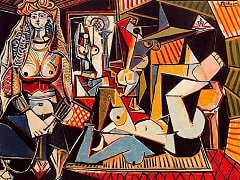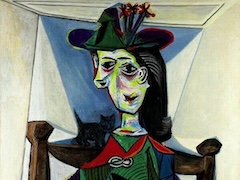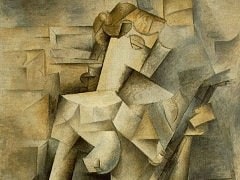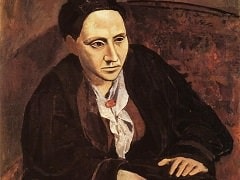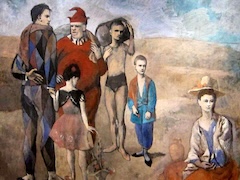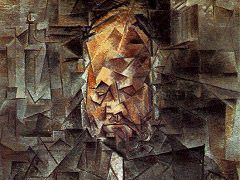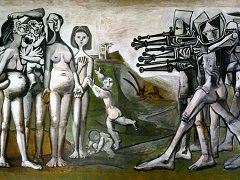Self Portrait With Palette, 1906 by Picasso
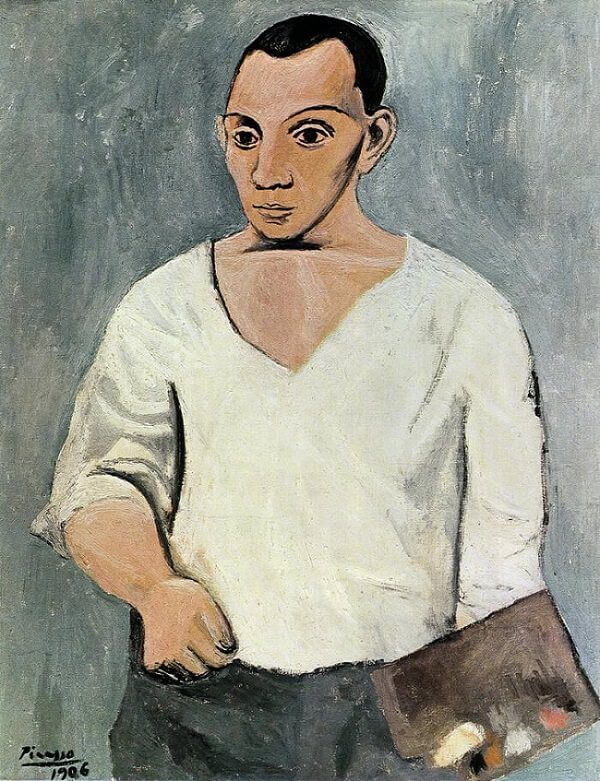
The tough, spare Self-Portrait with a Palette which Picasso painted in Paris in the autumn of 1906 makes a fitting partner to his Portrait of Gertrude Stein and uses allusion in a similar way. This time he seems not to have had much difficulty, and the picture was painted confidently and without major revisions. As if to underline his sense of brotherhood with her, Picasso gave himself the same mask-like, Iberian-style features and hypnotized gaze, and emphasized the mass and strength of his body. In this case we can be fairly sure that he intended the reference to the Iberian carvings as a sign of literal kinship. At the same time Self-Portrait with a Palette, like Portrait of Gertrude Stein, is very Cezannesque, and particularly like Self Portrait with a Palette, 1890 of Cezanne - one of the artist's most austere, impersonal and commanding self-images. The allusion may have had a strictly personal dimension for Picasso must have painted his self-portrait around the time of Cezanne's death on 23 October 1906. Its monkish gravity prompts the thought that it was an act of mourning as well as homage, and it may have been a sense of due reverence towards the deceased that led Picasso to omit the brushes and any gesture implying he was in the very act of painting: in the preparatory sketches he was inhibited by no such scruples and showed himself at work. The picture was also a marker for the future: Picasso's twenty-fifth birthday fell just two days after Cezanne's death - not the kind of coincidence he would have missed - and he may have read it as a sign that it was his destiny to take over where Cezanne had left off. That sense of identification comes out in later comments, such as the following, overheard by Brassai' on 12 November 1943:
As if I didn't know Cezanne! He was my on and only master! Don't you think I looked at his pictureds! I spent years studing them... Cezanne! It was the same with all of us - he was like our father. It was he who protected us!


